Why Digitalization in Railway Industry ?
Compliance
Safety
Growth & Scalability
Support
Unified Solution
Requirements Management
Validation & Verification
Collaboration
Our world is changing faster and faster
The rapid increase in urbanisation worldwide is driving the demand for more efficient and higher-performing railway connections in mass and intercity transit. Railway transport isn’t just about the passengers’ demands, it’s about the country’s economy. The challenge today is to introduce new rail systems and extend existing ones. This requires a profound knowledge of large-scale infrastructure projects and an understanding of how to reduce and manage their complexity.
Railway is a rapidly evolving, complex and highly regulated industry, in which product development teams must build safety-critical products, whilst streamlining risk management and keeping accuracy and security at the forefront. Functional safety and compliance with certification standards are critical to railway software and industrial manufacturing teams. Concerning the overall safety of a system or piece of equipment, functional safety is a key component that builds upon automatic protection. The best way to reduce risks in industrial manufacturing is to ensure automated protection systems have predictable responses to malfunctions or failures.
Functional Safety in Transportation Industry
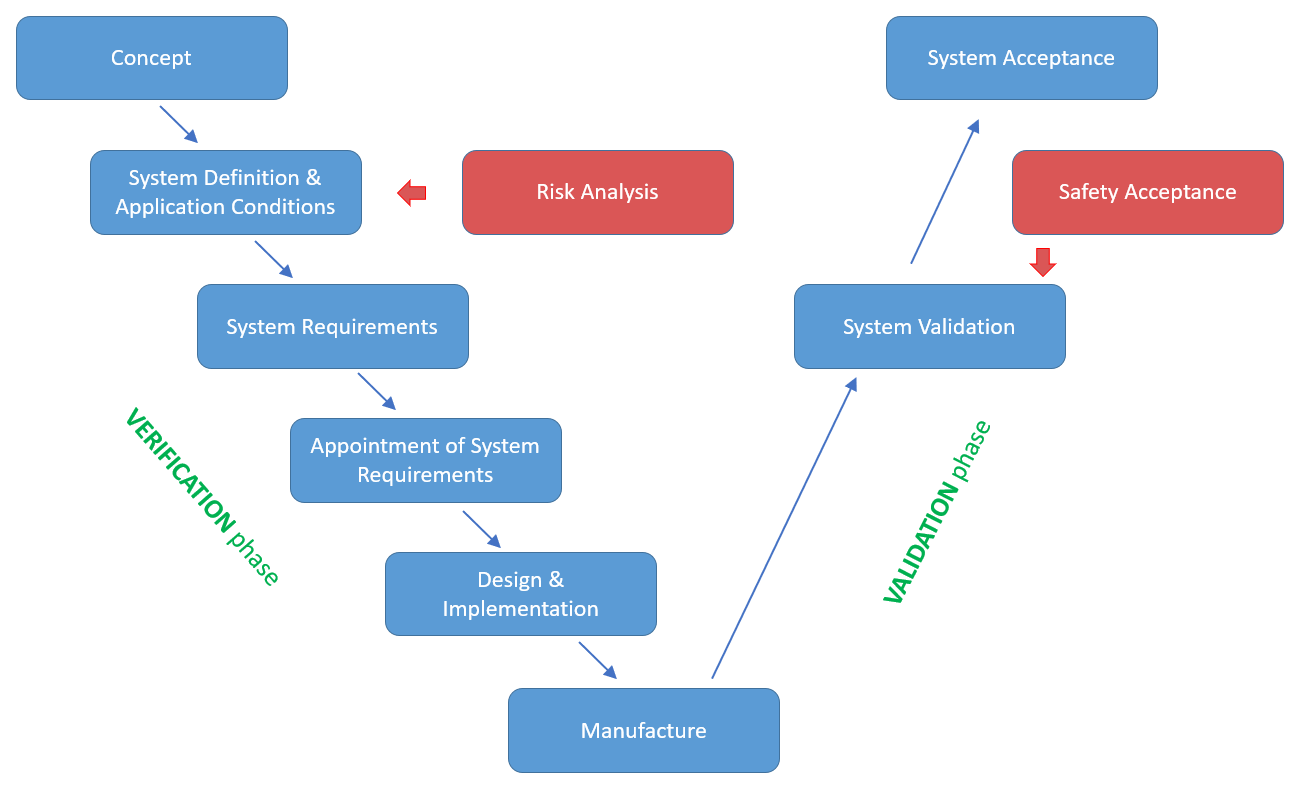
The International Electrotechnical Commission (IEC) provides the following example of transportation functional safety:
“When you board a train, the subway, or a cable car, functional safety ensures that the doors close before the vehicle departs and that they don’t open while it is in movement. They also ensure that the railway signalling system helps avoid an oncoming train crossing your train’s path.”
The safety of people and the environment is always the top priority
When systems fail to operate, significant disasters can occur. Eliminating all chances of risk may not always be possible, however, manufacturers must continuously seek strategies to mitigate potential safety issues. Safety standards, such as EN 50128 issued by CENELEC, are designed to reduce risk tolerance around these events. This standard specifies the requirements for railway applications, including communication, signaling, as well as processing systems for railway control and protection systems software.
Safety risks due to hazards caused by the malfunctioning behaviour of systems are increasing in the rail industry, because rail technology is becoming more and more complex, with both hardware and software interacting in different ways and components that are sourced from multiple markets.
POLARION ALM is one of the best unified application lifecycle management solutions when it comes to digitalisation in the railway industry.
Applications for the railroad sector are characterised by a long-life cycle of more than 20 years, where it is important to have good and traceable documentation for the designs. When components are discontinued, it is important to know the key parameters and properties of the obsolete component or the affected equipmentto create replacements with comparable properties.
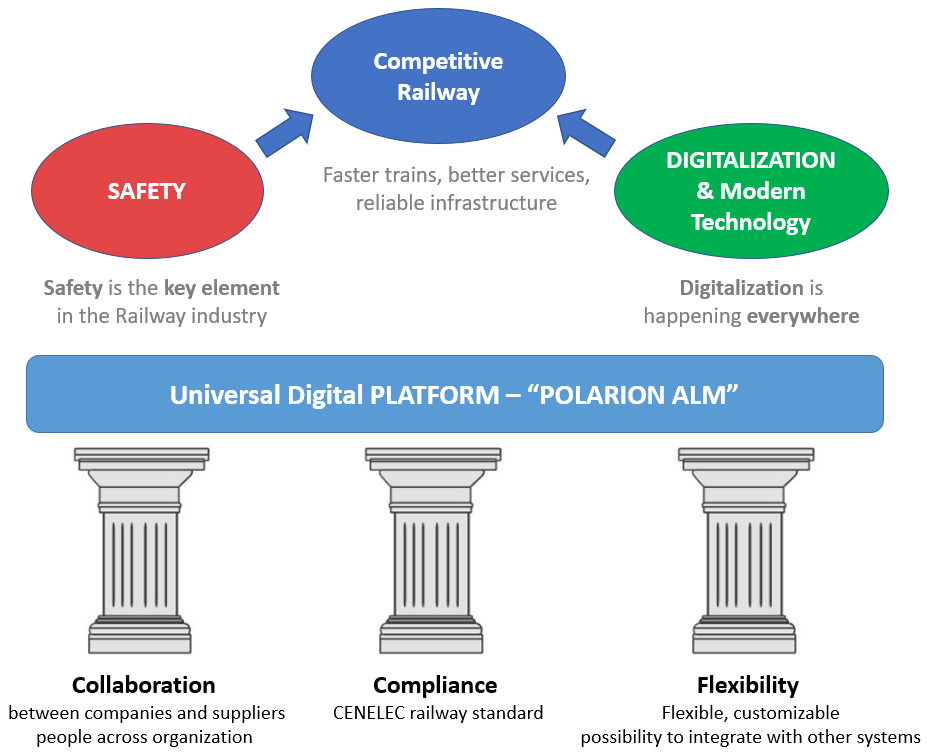
ALM solutions for digital transformation
Polarion ALM streamlines design, development, testing, QA, and risk and requirements management while maintaining compliance with key industry standards. It provides full traceability and transparency throughout the product lifecycle. Teams can quickly see the full historical context around a requirement when they contribute to a project, reducing the probability of errors as well as the time and overhead spent on risk analysis.
Polarion ALM can also be used for “Tender Management”, which is part of daily business in the railway industry. Additionally, Polarion is a perfect solution for complex document review and approval processes, it provides a ready-to-use and out-of-the-box Document Management System.
Polarion supports integrations with other systems, so it can be successfully integrated into your current tools ecosystem.
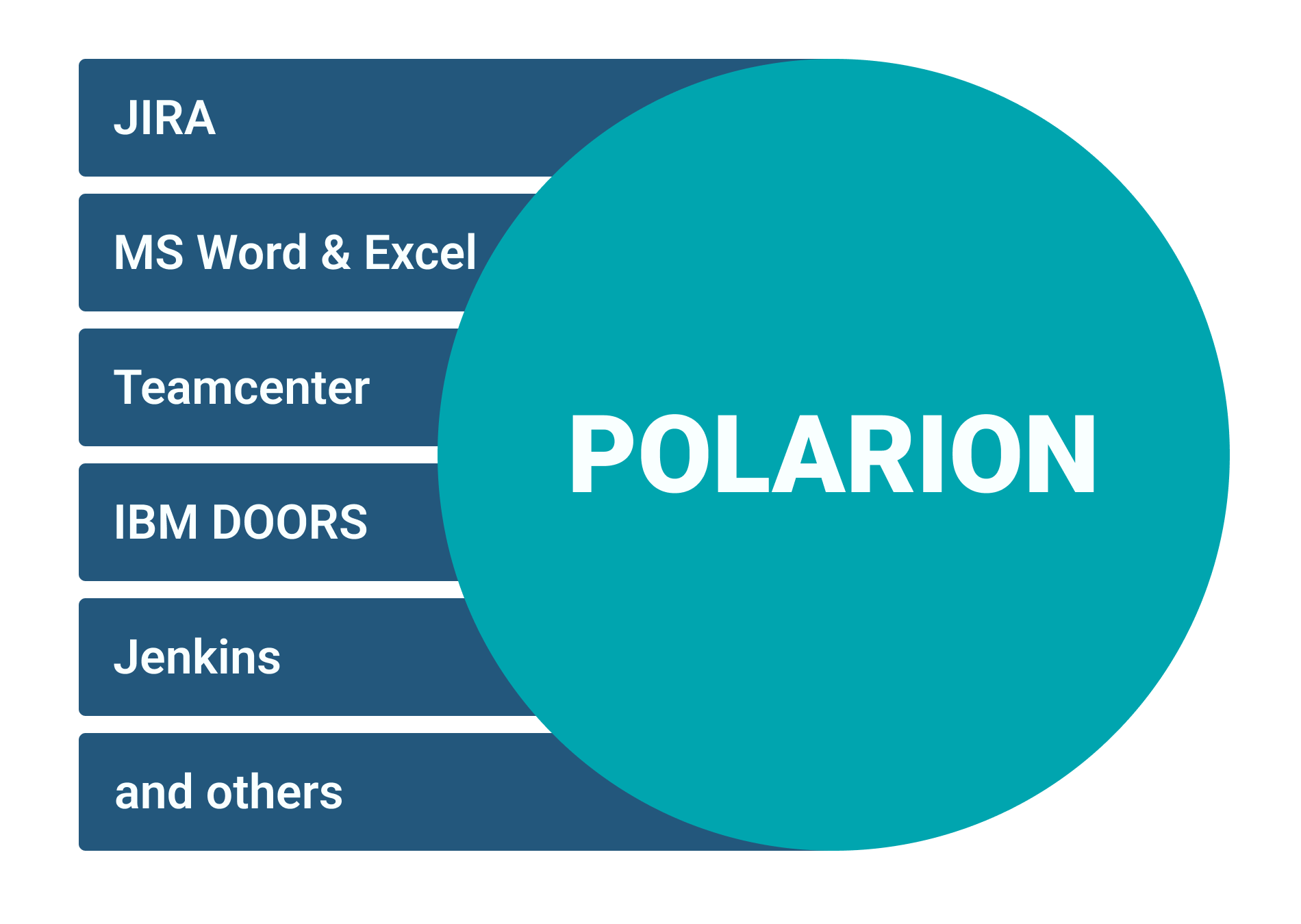
Our team will help you to improve project quality for local and long-distance, passenger and freight railway lines and increase business performance in the following ways:
- improve the efficiency of product development;
- identify and mitigate risks;
- improve quality, validation & verification;
- achieve compliance with quality standards.
Make your infrastructure intelligent with Polarion ALM – and, by doing so, increase the value of your business sustainably, enhance the passenger experience, and guarantee availability.
Ensuring Compliance & Managing Risks
Cyber Security Analysis

Predefined Project Template in Polarion ALM can help you with:
- Threat Analysis (list, manage, analyze, identify possible mitigations)
- Cybersecurity Management Systems
- Cyber Security Goals
- Attack Vectors
- Threat Assessment and Risk Analysis (TARA)
Safety and Requirements Management
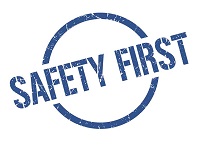
Our specialists can give you independent advice on:
- FMEA - Failure Mode Analysis
- Safety Goals & Safety Case
- Validation & Verification
- general recommendations on Requirements Management
- specific solutions for Safety-related Requirements Management
Compliance with Industry Standards
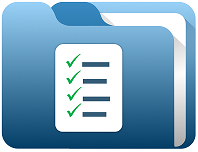
Polarion ALM can help you with:
- CENELEC Standard
- audit
- internal processes
- document management
- approvals & review, electronic signature
CONTACT US
READY TO GET STARTED?
We are happy to show you how Garantis can expand your business opportunities. Book a meeting and we will discuss all the details with you and your team.
